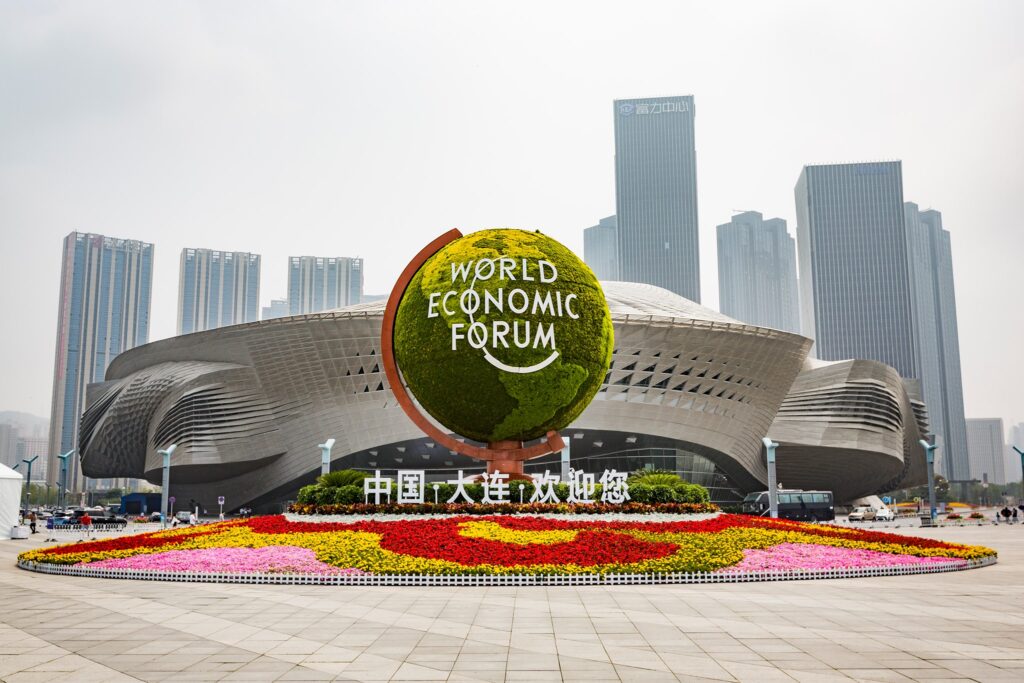MENA’s Green Transition: Unlocking Economic Opportunities to Drive Climate Action

|
Listen to this story:
|
- New World Economic Forum report charters green pathway to a more prosperous and sustainable Middle East and North Africa
- With the region warming at twice the global rate, concerted public-private sector collaboration and pragmatic policy-making are crucial to ensure its liveability tomorrow
- Bold regional climate action could unlock economic growth, high-quality job creation and global leadership in new technologies
- Read more about the report here.
The livelihoods of over half a billion people in the Middle East and North Africa (MENA) are under threat, as current projections indicate a 4C increase by 2050. A new World Economic Forum report, Closing the Climate Action Gap: Accelerating Decarbonization and the Energy Transition in MENA, highlights the key sustainability challenges in the region and provides a blueprint for bold decarbonization actions that could fuel new economic opportunities.
The report’s findings indicate how local leaders could simultaneously counter these projections while fostering greater economic diversification and high-quality jobs. This would spur on the regional momentum for holistic climate action, as illustrated by the back-to-back hosting of COP27 in Egypt and COP28 in the UAE, and position MENA as a global leader in sustainable technologiesfor years.
The report was developed in collaboration with Bain & Company, with contributions from more than 40 policy-makers, climate actors, business leaders, banks and industry experts from the private and public sectors who form the Forum’s Leaders for Sustainable MENA .
‘’The MENA region has been one of the fastest growing regions over the past decade and there is a pathway for the region to position itself at the forefront of sustainability efforts while maintaining its upward economic trajectory,” said Børge Brende, President, World Economic Forum. “As global markets continue to shift, and energy demands rise, the region requires bold and coordinated action from policy-makers and businesses to lead a just energy transition and meet both climate- and development-related goals.”
According to the report research, temperatures in the region are rising at twice the global average rate, presenting an array of challenges in the coming decades that could threaten the livelihoods of the 575 million people who live there, 70% of them in low-income countries. Climate shocks, such as rising temperatures and prolonged droughts, could have serious effects on agriculture and liveability, as well as a compound effect on MENA’s systemic issues.
The report finds that MENA countries trail behind comparable regions in terms of their sustainability progress. While local governments have pledged in the past 24 months to bring 60% of MENA’s emissions under the net zero ambition, businesses overall have yet to follow suit and bridge the gap with comparable global markets –12% have set up a net zero target and 6% have established a roadmap to reach net zero.
Related Article: World Economic Forum and Partners to Develop India’s First Zero-Emissions Road Freight Cluster
“Successfully transitioning to a sustainable future will hinge on bold measures from policymakers and companies, raising awareness and multi-stakeholder partnerships”, said Tom De Waele, Managing Partner of Bain & Company Middle East. “But while this sustainability action for Middle East requires significant investment of time and resources, it also represents a significant economic opportunity, which could well position the MENA region at the heart of global energy transition and unlock doors to economic diversification, high-quality job creation, and global leadership in low-carbon technologies.”
With abundant natural resources like solar and wind energy, and significant land availability, the region could become a global leader in scaling new energy pathways, such as renewables and clean hydrogen. Coupled with capital availability and decisive governance in the largest economies, these characteristics could facilitate MENA’s transition to a decarbonized economy while helping it meet the growing international demand for clean energy.
“Today, we find ourselves at a clean-energy tipping point and the good news is that there has never been so much momentum, so much convergence in market demand, technology, regulation and public sentiment.” said Henadi Al-Saleh, Chairperson, Agility. “As a result, climate-related activity by companies and investors has already shifted from risk mitigation to opportunity capture. The MENA region has abundant resources, talent, ambition – and renewable resources in the form solar and wind – to lead the way and make significant contributions to the global decarbonisation drive.”
The report offers a tailored roadmap for regional policy-makers and businesses to advance sustainability action and facilitate economic diversification through the energy transition, considering the characteristics and needs of both the Gulf and non-Gulf countries alike.
To safeguard economic growth and global energy influence, Gulf nations should focus on technology-based solutions that reduce emissions in challenging sectors, optimize consumption, transition to renewables and implement carbon capture at scale. Meanwhile, non-Gulf countries should prioritize affordable energy, particularly in low-income areas, by increasing renewable energy usage, phasing out regressive fossil fuel subsidies and supporting carbon credit projects.
Upskilling in green jobs through skill development programmes and industry partnerships will be crucial across the region.










